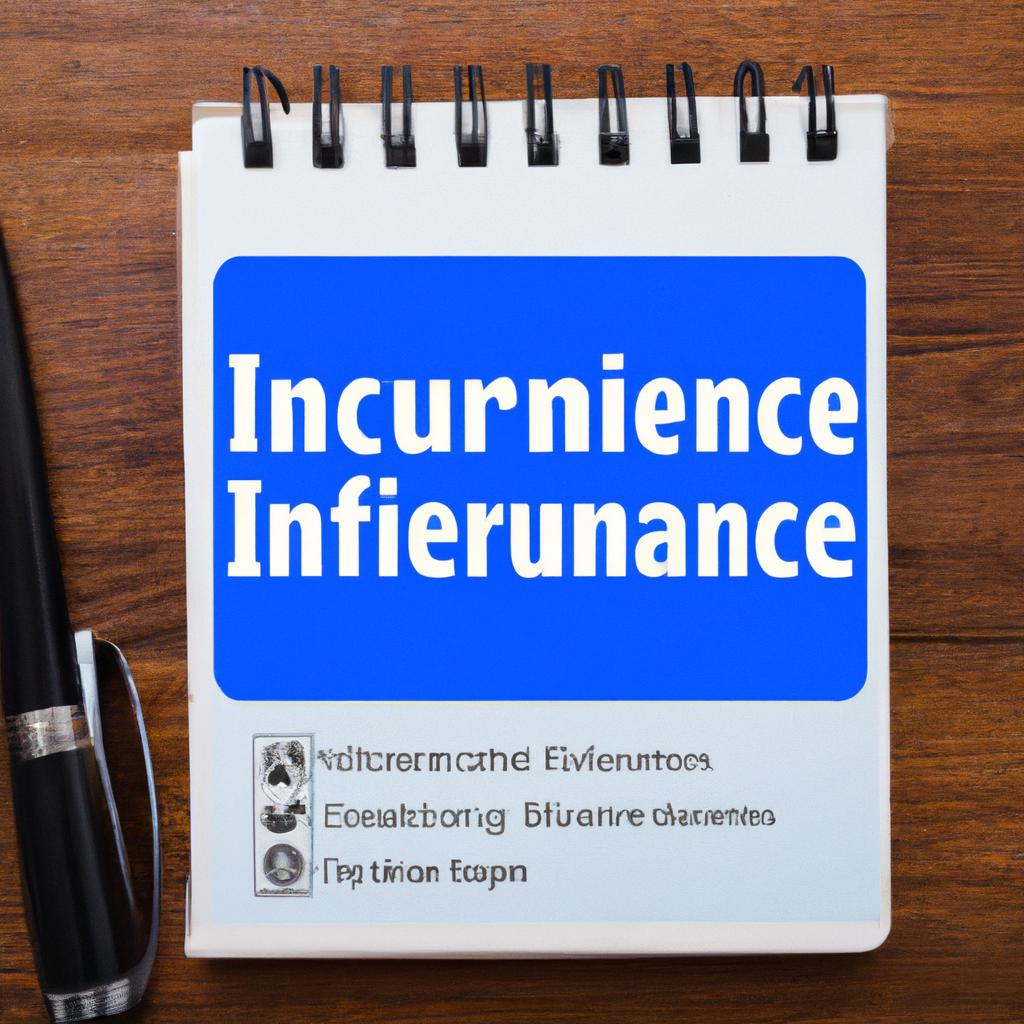As a seasoned practitioner in the field of estate planning, our team at Morgan Legal Group understands the intricate nuances of navigating the labyrinthine world of life insurance beneficiary rules. In this article, we delve into the essential guidelines and regulations that govern the designation of beneficiaries in life insurance policies. Drawing on our expertise in probate, elder law, Wills, and trusts, we offer a comprehensive exploration of the rights and responsibilities that come with being a beneficiary. Join us as we dissect the complex web of legalities surrounding life insurance beneficiaries, providing clarity and insight for those seeking to secure their loved ones’ financial futures.
Understanding the Importance of Designating a Beneficiary in Your Life Insurance Policy
Designating a beneficiary in your life insurance policy is a crucial aspect of estate planning that should not be overlooked. By properly designating a beneficiary, you ensure that your loved ones are taken care of in the event of your passing. It is important to understand the rules and implications of choosing a beneficiary to ensure that your wishes are carried out according to your intentions.
When designating a beneficiary in your life insurance policy, it is important to consider the following:
- Ensure that your beneficiary information is up to date and accurately reflects your wishes
- Understand the impact of naming a minor as a beneficiary and consider setting up a trust to manage the funds on their behalf
- Consider naming contingent beneficiaries in case your primary beneficiary passes away before you

Key Considerations When Choosing a Life Insurance Beneficiary
When selecting a beneficiary for your life insurance policy, it is crucial to carefully consider several key factors to ensure your wishes are carried out effectively. Firstly, it is important to choose someone who you trust implicitly to handle the funds responsibly and in accordance with your intentions. This individual should be financially responsible and able to manage a significant sum of money in the event of your passing. **Consider discussing your decision with a legal professional to ensure the chosen beneficiary is fully aware of their responsibilities and the potential tax implications involved.**
Furthermore, it is essential to review and update your beneficiary designation regularly, especially after significant life events such as marriage, divorce, or the birth of a child. Failure to keep this information current could lead to unintended consequences and disputes among potential beneficiaries. Make sure to also consider naming contingent beneficiaries to prevent any complications in case your primary beneficiary is unable to receive the funds. By carefully considering these key factors, you can ensure that your life insurance proceeds are distributed in accordance with your wishes and provide financial security for your loved ones.
Navigating Complexities: Legal Implications of Naming Minors as Beneficiaries
When considering naming minors as beneficiaries in life insurance policies, it is essential to be aware of the legal implications that may arise. As minors are not legally able to manage assets or funds, special considerations must be taken to ensure that their interests are protected.
One option to navigate these complexities is to establish a trust for the minor beneficiary. By naming the trust as the beneficiary of the life insurance policy, the funds can be managed and distributed according to the terms of the trust. This provides a level of control and protection for the minor, ensuring that the funds are used for their benefit. Another consideration is designating a guardian or custodian to handle the funds until the minor reaches the age of majority. It is crucial to consult with an experienced attorney to create a legally sound plan that meets the unique needs of your situation.

Recommendations for Updating Your Life Insurance Beneficiary Designation Regularly
Regularly updating your life insurance beneficiary designation is crucial to ensure that your policy reflects your current wishes and circumstances. Failure to do so can lead to unintended consequences and disputes among your loved ones after your passing. Follow these recommendations to keep your life insurance beneficiary designation up to date:
- Review Your Beneficiary Designation Annually: Set a reminder to review your life insurance policy at least once a year to confirm that your designated beneficiaries are still accurate and reflect your current wishes.
- Update Your Beneficiary Designation After Life Changes: Make updates to your beneficiary designation after major life events such as marriage, divorce, birth of children, or death of a loved one. Failure to do so could result in your life insurance proceeds going to the wrong person.
Ensuring that your life insurance beneficiary designation is current and accurate is an important aspect of estate planning. By taking the time to review and update this information regularly, you can help prevent potential conflicts and ensure that your loved ones are properly taken care of in the future. Remember, consulting with an experienced estate planning attorney like Morgan Legal Group can provide valuable guidance and peace of mind throughout this process.
Q&A
Q: What are life insurance beneficiary rules?
A: Life insurance beneficiary rules outline who receives the death benefit from a life insurance policy.
Q: Who can be named as a beneficiary?
A: Typically, a policyholder can name an individual, multiple individuals, a trustee, a charity, or even their estate as a beneficiary.
Q: Can the beneficiary be changed?
A: Yes, a policyholder can typically change their beneficiary designation at any time, as long as they are mentally competent and legally able to do so.
Q: What happens if there is no named beneficiary?
A: If a policyholder dies without a named beneficiary, the death benefit will usually be paid out to their estate.
Q: Are there any restrictions on who can be named as a beneficiary?
A: In some cases, there may be restrictions on naming certain individuals or entities as beneficiaries, such as minors or creditors.
Q: Can a beneficiary contest the life insurance payout?
A: Beneficiaries do have the right to contest a life insurance payout, but they must have a valid reason, such as fraud or coercion.
Q: How long does it take for a beneficiary to receive the death benefit?
A: Typically, beneficiaries can expect to receive the death benefit within a few weeks to a few months after the policyholder’s death, depending on the circumstances.
Q: Are there tax implications for life insurance beneficiaries?
A: In most cases, life insurance death benefits are not taxable for the beneficiary, but there may be exceptions for larger policy amounts. It’s advisable to consult with a tax professional for guidance.
In Summary
In conclusion, understanding the rules surrounding life insurance beneficiaries is crucial in ensuring that your loved ones are protected in the event of your passing. By familiarizing yourself with the various regulations and options available, you can make informed decisions that will bring peace of mind to both you and your beneficiaries. Remember, life insurance is not just about providing financial support after your death, but also about leaving a legacy of security and stability for those you hold dear. So take the time to review your policy, update your beneficiaries, and rest easy knowing that you have taken the necessary steps to safeguard your family’s future. Life is unpredictable, but with the right preparation, you can ensure that your loved ones are taken care of no matter what the future may hold.






